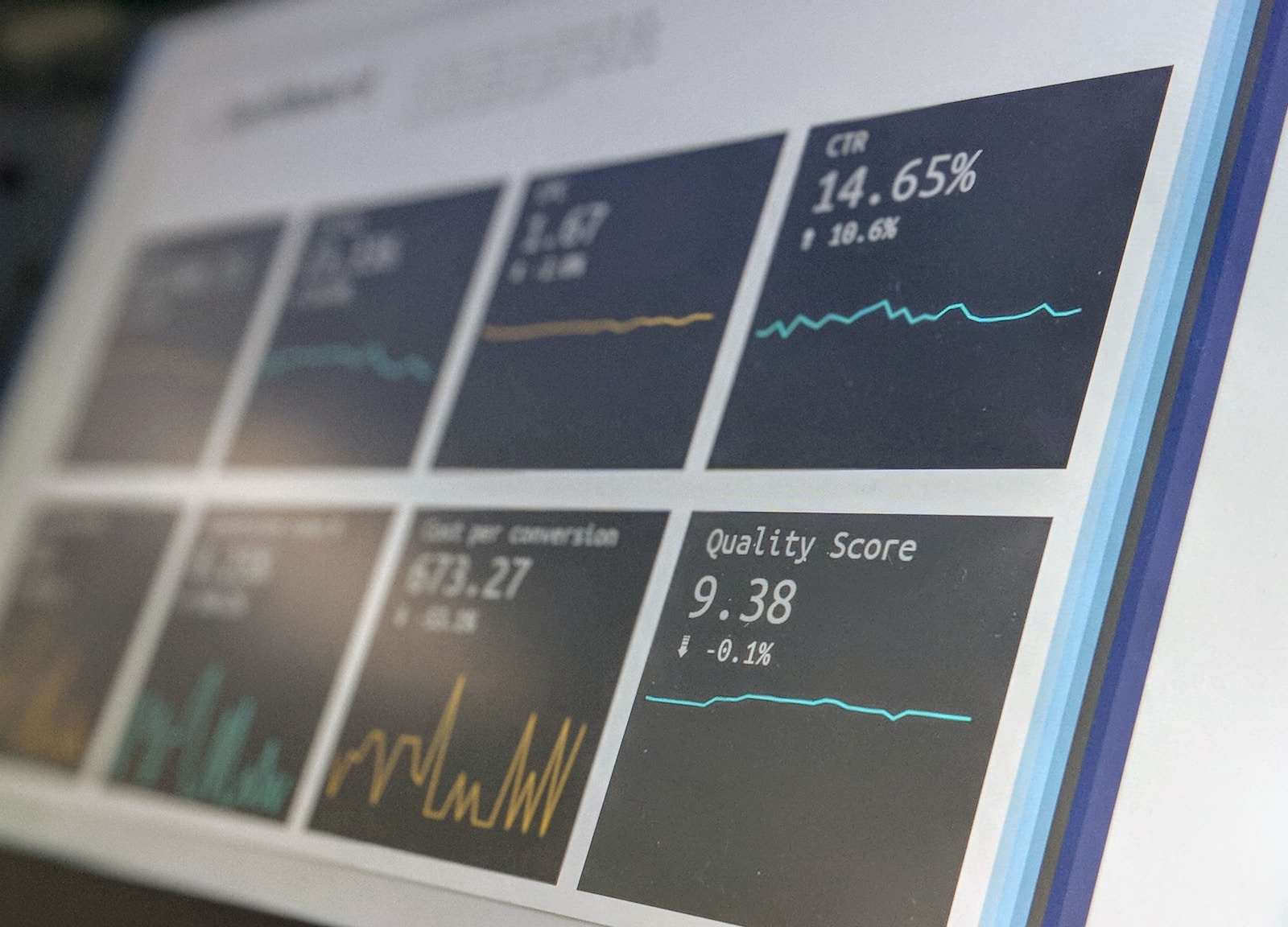In recent years, Artificial Intelligence (AI) has made significant strides in transforming various industries, and healthcare is no exception. With its ability to analyze large amounts of data, identify patterns, and make predictions, AI has the potential to revolutionize healthcare outcomes. From assisting in diagnosis to streamlining administrative processes, AI is proving to be a valuable tool in improving patient care and overall outcomes. This article delves into the various ways AI can enhance healthcare outcomes and explores its potential impact on the industry.
Enhancing Diagnostic Accuracy
The accuracy of medical diagnoses is crucial for effective treatment and improved patient outcomes. AI has the potential to augment the diagnostic process by analyzing vast amounts of medical data, including patient histories, lab results, and medical images. By comparing this data with established patterns and using machine learning algorithms, AI systems can provide healthcare professionals with more accurate and timely diagnoses.
A study published in Nature Medicine demonstrated the potential of AI in improving cancer diagnoses. Researchers trained an AI model to analyze medical images of skin lesions and identify various types of skin cancers. The AI system achieved comparable accuracy to dermatologists and demonstrated the potential for AI to serve as a valuable tool in cancer diagnosis.
Optimizing Treatment Plans
Once a diagnosis is made, AI can assist in developing optimized treatment plans tailored to individual patients. By considering a patient’s medical history, genetic information, and current condition, AI algorithms can recommend personalized treatment options that have the highest likelihood of success.
For instance, in the field of oncology, AI can analyze genetic information from cancer patients and provide insights into the most effective targeted therapies. This allows healthcare providers to make data-driven decisions and increase the chances of successful treatment outcomes.
Streamlining Administrative Processes
In addition to improving clinical outcomes, AI can also streamline administrative processes within healthcare organizations. From managing patient records to optimizing resource allocation, AI-powered systems can enhance efficiency and reduce the burden on healthcare professionals.
AI-powered chatbots, for example, can handle routine patient inquiries and appointment scheduling, freeing up administrative staff to focus on more complex tasks. These chatbots can provide personalized responses based on patient data, ensuring a seamless and efficient experience for patients.
Predictive Analytics for Early Intervention
Early intervention plays a critical role in managing and preventing various health conditions. AI can analyze patient data to identify patterns and risk factors that may indicate the development of certain diseases or complications. By detecting these signs early on, healthcare providers can intervene proactively and potentially prevent adverse outcomes.
For example, AI algorithms can analyze electronic health records and identify patients at risk of developing sepsis—an often life-threatening condition. By alerting healthcare professionals to these high-risk cases, AI can help facilitate timely interventions and improve patient outcomes.
Remote Patient Monitoring
AI technology has the potential to transform how patients are monitored, particularly in remote or home-based settings. Wearable devices equipped with AI algorithms can continuously track vital signs, detect irregularities, and alert healthcare providers to potential issues. This enables early intervention and reduces the need for frequent hospital visits, improving convenience for patients while ensuring their safety.
Precision Medicine and Drug Discovery
The field of precision medicine aims to tailor medical treatments to individual patients based on their unique characteristics, including genetic makeup, lifestyle, and environmental factors. AI plays a crucial role in precision medicine by analyzing large datasets to identify correlations between genetic markers and treatment responses.
Through AI-powered algorithms, researchers can uncover potential drug targets and design more effective treatments for specific patient populations. This approach has the potential to revolutionize the development of new drugs and therapies, ultimately improving healthcare outcomes.
What Are the Challenges of Implementing AI in Healthcare?
1. Limited Data Availability
One of the main challenges in implementing AI in healthcare is the limited availability of high-quality, well-annotated data. AI algorithms require large amounts of data to train and make accurate predictions. However, healthcare data is often scattered across various sources, in different formats, and with varying levels of quality. Additionally, data privacy and security concerns make it difficult to share and access patient data. To overcome this challenge, healthcare organizations need to establish data sharing protocols, ensure data interoperability, and implement robust security measures.
2. Data Privacy and Security
Protecting patient data privacy is of utmost importance in healthcare. AI systems rely on sensitive patient information, such as medical records and genomic data, to provide personalized care. However, this also makes them an attractive target for cyberattacks. Ensuring robust data security measures, such as encryption, access controls, and audit trails, is crucial to prevent unauthorized access and maintain patient trust. Compliance with data protection regulations, such as the Health Insurance Portability and Accountability Act (HIPAA), is essential for healthcare organizations implementing AI.
3. Ethical Considerations
AI in healthcare raises ethical concerns regarding the use of patient data, potential biases in algorithms, and the accountability of AI systems. Biased algorithms can lead to disparities in healthcare outcomes for different demographic groups. It is essential to ensure transparency and fairness in AI algorithms to avoid perpetuating existing biases. Additionally, clear guidelines and regulations should be established to define the ethical boundaries of AI applications in healthcare, including issues related to consent, data usage, and decision-making.
4. Regulatory and Legal Frameworks
The implementation of AI in healthcare is subject to strict regulatory and legal frameworks. Healthcare organizations need to navigate complex regulations and obtain necessary approvals before deploying AI systems. Regulatory bodies, such as the Food and Drug Administration (FDA), play a crucial role in assessing the safety and efficacy of AI-based medical devices and treatments. Adhering to these regulatory requirements can be time-consuming and costly for healthcare providers, posing a challenge to the widespread adoption of AI in healthcare.
5. Integration with Existing Systems
Integrating AI systems with existing healthcare infrastructure can be challenging. Many healthcare organizations still rely on legacy systems that may not be compatible with AI technologies. Upgrading or replacing these systems to accommodate AI capabilities requires significant investments in terms of time, resources, and training. Furthermore, interoperability between different AI systems and electronic health record (EHR) platforms is crucial for seamless data exchange and collaboration. Standardization efforts are needed to ensure interoperability and facilitate the integration of AI technologies.
6. Lack of Trust and Acceptance
The successful implementation of AI in healthcare depends on the trust and acceptance of healthcare professionals and patients. Skepticism and fear about the reliability and accuracy of AI systems can hinder their adoption. Healthcare providers may be hesitant to rely on AI algorithms for critical decision-making due to concerns about errors or loss of control. Building trust in AI technologies requires transparent communication about the benefits, limitations, and safeguards in place. Educating healthcare professionals and patients about the capabilities and potential impact of AI can help foster acceptance and adoption.
7. Clinical Validation and Evidence
For AI systems to be widely adopted in healthcare, they need to undergo rigorous clinical validation and evidence-based evaluation. Robust studies and trials are essential to demonstrate the effectiveness and safety of AI algorithms compared to standard practices. Generating high-quality evidence requires collaboration between researchers, clinicians, and regulatory authorities. The lack of standardized evaluation frameworks and long validation processes can delay the integration of AI solutions into clinical practice.
8. Cost and Resource Constraints
Implementing AI in healthcare can involve significant costs and resource requirements. Developing and maintaining AI systems, procuring high-performance computing infrastructure, and training personnel to work with AI technologies require substantial investments. Smaller healthcare organizations and resource-constrained settings may face challenges in allocating the necessary funds and expertise for AI implementation. Public-private partnerships and funding initiatives can help address these challenges and promote equitable access to AI-driven healthcare solutions.
9. Workflow Integration and User Experience
Introducing AI systems into healthcare workflows requires careful consideration of user experience and workflow integration. AI algorithms should seamlessly integrate into clinical processes without disrupting the established workflows. User-friendly interfaces, clear visualizations, and actionable insights are crucial to facilitate the adoption of AI tools by healthcare professionals. Customizing AI solutions to fit specific healthcare settings and providing adequate training and support can enhance the user experience and minimize disruptions during the implementation process.
FAQs
Q1: How can AI help reduce medical errors?
AI can help reduce medical errors by analyzing vast amounts of patient data and identifying potential risks and complications. By alerting healthcare providers to these risks, AI can facilitate proactive interventions, leading to improved patient safety and reduced errors.
Q2: Is AI replacing healthcare professionals?
No, AI is not replacing healthcare professionals. Instead, it acts as a valuable tool that augments their abilities and enhances decision-making processes. AI systems provide healthcare professionals with data-driven insights and recommendations, allowing them to make more informed and precise decisions.
Q3: What are the ethical considerations of using AI in healthcare?
The use of AI in healthcare raises important ethical considerations. It is crucial to ensure patient privacy and data security when implementing AI systems. Additionally, transparency and explainability of AI algorithms are essential to gain trust from both healthcare professionals and patients.
Q4: Can AI improve healthcare outcomes in resource-constrained settings?
Yes, AI has the potential to improve healthcare outcomes in resource-constrained settings. By automating certain tasks, optimizing resource allocation, and providing decision support, AI can help overcome some of the limitations imposed by limited resources.
Q5: How can AI contribute to population health management?
AI can contribute to population health management by analyzing large datasets to identify health trends, risk factors, and potential interventions. This information can inform public health strategies, facilitate targeted interventions, and ultimately improve the health outcomes of entire populations.
Conclusion
The integration of AI in healthcare has the potential to revolutionize the industry and improve patient outcomes. From enhancing diagnostic accuracy to optimizing treatment plans and streamlining administrative processes, AI brings numerous benefits to the healthcare ecosystem. However, it is essential to address ethical considerations, ensure data privacy, and overcome implementation challenges to fully harness the potential of AI. By leveraging the power of AI responsibly and collaboratively, we can pave the way for a future where healthcare is more precise, accessible, and effective.

